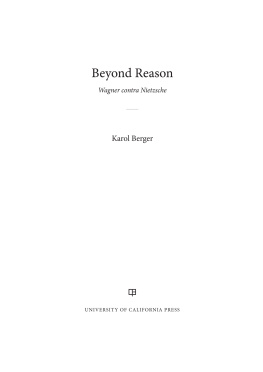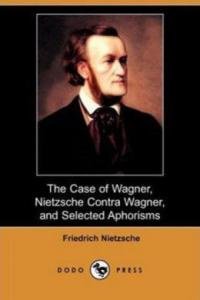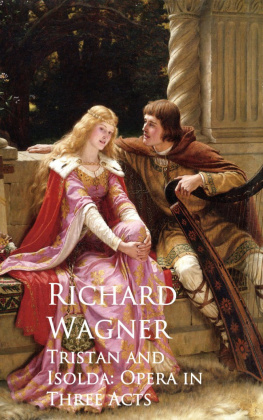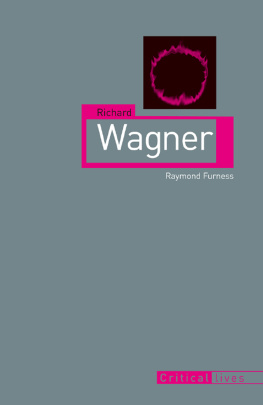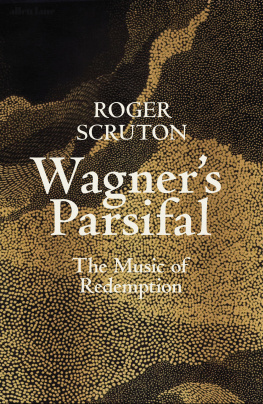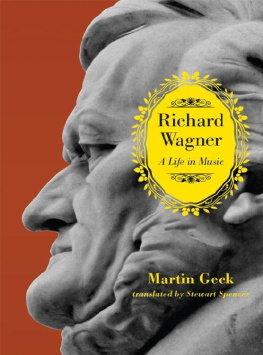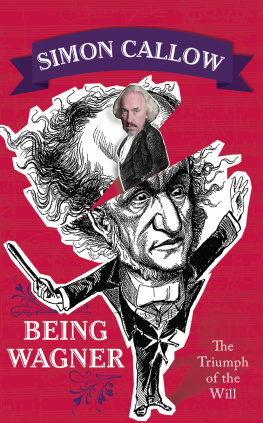Michael P. Roth and Sukey Garcetti have endowed this imprint to honor the memory of their parents, Julia and Harry Roth, whose deep love of music they wish to share with others.
The publisher gratefully acknowledges the generous support of the Music in America Endowment Fund of the University of California Press Foundation, which was established by a major gift from Sukey and Gil Garcetti, Michael P. Roth, and the Roth Family Foundation.
The publisher gratefully acknowledges the Joseph Kerman Endowment of the American Musicological Society, funded in part by the National Endowment for the Humanities and the Andrew W. Mellon Foundation.
Beyond Reason
Wagner contra Nietzsche
Karol Berger

UNIVERSITY OF CALIFORNIA PRESS
University of California Press, one of the most distinguished university presses in the United States, enriches lives around the world by advancing scholarship in the humanities, social sciences, and natural sciences. Its activities are supported by the UC Press Foundation and by philanthropic contributions from individuals and institutions. For more information, visit www.ucpress.edu.
University of California Press
Oakland, California
2017 by Karol Berger
Library of Congress Cataloging-in-Publication Data
Names: Berger, Karol, 1947 author.
Title: Beyond reason : Wagner contra Nietzsche / Karol Berger.
Description: Oakland, California : University of California Press, [2016] | Includes bibliographical references and index.
Identifiers: LCCN 2016015325 | ISBN 9780520292758 (cloth : alk. paper) | ISBN 9780520966130 (ebook)
Subjects: LCSH : Wagner, Richard, 18131883. Operas. | Wagner, Richard, 18131883Philosophy. | Nietzsche, Friedrich Wilhelm, 18441900Criticism and interpretation. | OperasPhilosophy and aesthetics.
Classification: LCC ML 410. W 13 B 45 2016 | DDC 782.1092dc23
LC record available at https://lccn.loc.gov/2016015325
Manufactured in the United States of America
25 24 23 22 21 20 19 18 17 16
10 9 8 7 6 5 4 3 2 1
For Anna, Trine, Matthew, and Zuzia
There are questions in which man is not entitled to a decision about truth and untruth; all the highest questions, all the highest value problems, lie beyond human reason. To comprehend the limits of reasonthat alone is truly philosophy.
FRIEDRICH NIETZSCHE, THE ANTICHRIST, TRANS. WALTER KAUFMANN
Thinking begins only when we have come to know that reason, glorified for centuries, is the most stiff-necked adversary of thought.
MARTIN HEIDEGGER, THE WORD OF NIETZSCHE: GOD IS DEAD, TRANS. WILLIAM LOVITT
CONTENTS
PREFACE
The story has often been told and will be known to anyone likely to open this book. In May 1849, Richard Wagner, the Kapellmeister of the Royal Saxon Court Opera in Dresden and already the author of three operas ( Der fliegende Hollnder , Tann-huser , and Lohengrin ) destined to be recognized as the core of the German romantic repertoire, took an active part in the uprising against the government of Saxony. A few weeks later, the revolution having failed, he found himself an exile in Switzerland, without employment or access to the German opera houses on which his professional life depended, and he took the opportunity of the enforced leisure to rethink his operatic theory and practice so radically that the eventual fruits of this reinvention ( Der Ring des Nibelungen , Tristan und Isolde , Die Meister-singer von Nrnberg , and Parsifal ) deserve a new generic label of music dramas. These four works of the second half of the composers career (four or seven, if one wants to count the four component evenings of the Ring tetralogy separately) are the subject of the present book.
In writing it, I had two aims in mind. First, I wanted to penetrate the secret (to use Alfred Lorenzs locution) of large-scale form in Wagners music dramas, to understand how the composer shaped each act and each work as a whole. At the same time I also wanted to find out whether, and to what extent, his large forms provide clues as to how he wanted his dramas to be heard and understood. From early on, the originality and novelty of Wagners formal principles and solutions provoked skeptics. Friedrich Nietzsche, in many ways (but not in this one) the most perceptive of Wagners critics, quipped that the composer was our greatest miniaturist in music, thus at once praising Wagners uncanny ability to capture the most subtle stirrings of his characters souls in small but eloquently and I shall have to leave it to my readers to decide whether the answer I propose here is at all persuasive. I can only note that the answer has been something of a surprise, in that it turned out to be different from what I had expected as I began the project. Like so many of my predecessors (Lorenz included), I began under the influence of Wagners own theories (those of Oper und Drama , in particular), and these naturally emphasized the distance between the composers proposed innovations and the current operatic practice. Turning from the theories to the works themselves, I gradually discovered just how deeply indebted to traditional operatic procedures Wagner remained also in the music dramas. As I take leave of this book, my admiration for Wagners control over unprecedentedly long spans of time, as well as for the originality, novelty, and variety of his specific formal solutions, is greater than ever, but my understanding of this control and these solutions has been transformed.
But Wagner was not only a great composer; he was also a significant dramatic poet and a restless thinker. The second aim that guided me here has been to see the ideological import of Wagners dramas against the background of the worldviews that were current in his lifetime and, in particular, to confront his works with Nietzsches critique. What connects the two aims is my conviction that a grasp of Wagners large forms affords insights into the dramatic and philosophical implications of his works. As I shall argue, the music dramas of Wagners later years registered and reacted to every major component in the complex ideological landscape that emerged during his centurya landscape which, I believe, is still the one we inhabit today. Like a number of artists of his time, in his later years Wagner understood himself to be something more than just an artist; he saw himself as a cultural prophet announcing and preparing better, more desirable forms of life for humanity. The specific content of his message never ceased to evolve, but his self-understanding as someone with a message to deliver remained constant. My aim has been to capture with some precision the specific place each of the music dramas occupies on the ideological map of its time. The confrontation with Nietzsche, a rival cultural prophet, takes on a particular urgency in this context, since what was at stake in the philosophers objections to the artist was precisely the ideological import of Wagners works.
Also here the direction my project took surprised me. Like so many people today, I had begun loving the music, but suspecting the message. Having finished the project, I still love the music and still find some aspects of the message disturbing, but disturbing for somewhat different reasons and in different works. For instance, I no longer consider Parsifal to be as guilty as some of its critics would have us believe; I have also learned better to appreciate the full extent of the ambiguity of Die Meistersinger. My understanding of the Wagner-Nietzsche relationship has been transformed, too. I started out convinced that Nietzsches objections to Wagner were by and large well taken, and that the study of their encounter would likely illuminate Wagners dramas, but not Nietzsches books. Today I still admire Nietzsches critical acumen, but I see as well not only that Wagners works can defend themselves surprisingly effectively against some of the philosophers central strictures, but also that these works implicitly offer an unexpectedly perceptive critique of a number of Nietzsches most cherished doctrines. This is why I felt the need to amplify Nietzsche contra Wagner with Wagner contra Nietzsche.

